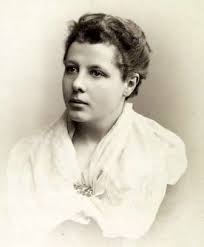Q. Analyze the role of foreigners who made India their homeland in the Indian Freedom Movement.
Ans: During the Indian Freedom Movement, several foreigners who chose India as their homeland played significant roles in supporting and contributing to the cause of India’s independence from British colonial rule. These individuals, often referred to as “Anglo-Indians” or “foreign nationalists,” joined hands with Indian leaders and activists, making valuable contributions to the struggle for freedom.

Their roles can be analyzed in the following ways:
- Leadership and Advocacy:
- Foreigners like Annie Besant, an Englishwoman, played crucial leadership roles in the Indian National Congress and other organizations. She advocated for self-rule and participated in various movements, including the Home Rule Movement.
- Henry Vivian Derozio, a Eurasian teacher and poet, was an early advocate of Indian nationalism during the 19th century. He influenced young minds and inspired them to question British rule.
- Promotion of Indian Culture and Unity:
- Foreigners like Sister Nivedita (Margaret Noble), an Irish disciple of Swami Vivekananda, actively promoted Indian culture, education, and spirituality. She worked towards women’s education and social reform.
- German Indologist Max Müller made significant contributions to the study of Indian history, religion, and culture, which helped in fostering a sense of national pride among Indians.
- Media and Publications:
- Foreign nationalists used their knowledge of media and publications to spread awareness about India’s plight. Irish journalist Dadabhai Naoroji, known as the “Grand Old Man of India,” wrote extensively on India’s economic exploitation by the British.
- William Wedderburn, a British civil servant, and Allan Octavian Hume, a British ornithologist, founded the Indian National Congress and used their influence to amplify Indian grievances.
- Educational Initiatives:
- Many foreigners established educational institutions to foster a sense of national identity and educate Indians about their rights and history. Scottish missionary Alexander Duff is known for his efforts to modernize Indian education.
- Participation in Mass Movements:
- Foreigners actively participated in mass movements like the Non-Cooperation Movement and the Civil Disobedience Movement. Some faced imprisonment and hardships alongside Indian activists.
- American journalist Katherine Mayo’s book “Mother India” stirred controversy for its portrayal of Indian society, leading to widespread protests against its colonial bias.
- Support for Indian Leaders:
- Rabindranath Tagore, an Indian Nobel laureate, was closely associated with foreigners who shared his vision of a free India. He had meaningful interactions with personalities like Albert Einstein and H.G. Wells.
While foreigners who supported the Indian Freedom Movement played vital roles, their contributions were not without criticism or controversies. Some were accused of appropriating the movement for their own interests or misinterpreting Indian culture. However, their collective efforts demonstrated the universality of the struggle for freedom and the importance of diverse voices in shaping India’s destiny.
Thanks for reading the answer to the question: Analyze the role of foreigners who made India their homeland in the Indian Freedom Movement.
Read: